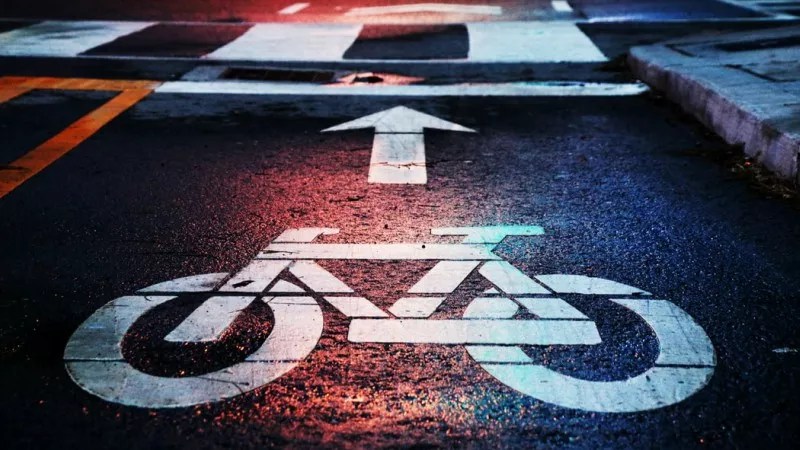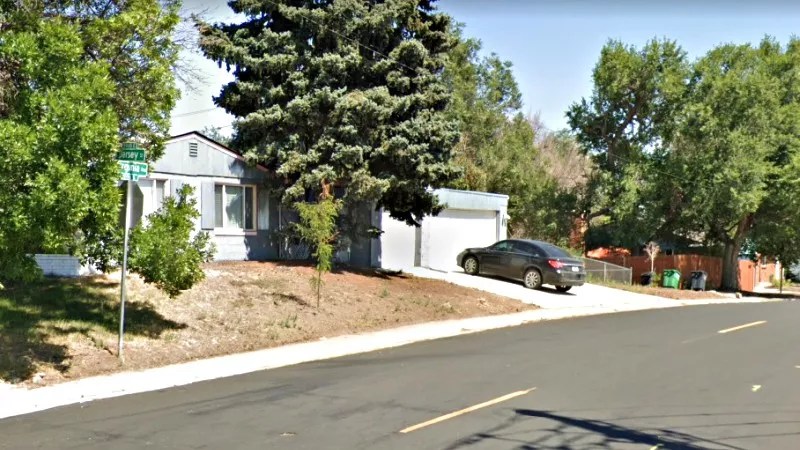
Photo by Andrew Gook on Unsplash

Audio By Carbonatix
A recent Westword cover story asked what at first blush seems like a very simple question: “Can Denver End Its Love Affair With the Car?” But the answers are complicated, as evidenced by the process to win approval for new bike lanes, which can be long and painful for everyone involved.
Take a January 21 meeting at the BMH-BJ Congregation Library, 560 South Monaco Parkway, about plans for a new bike lane on East Virginia Avenue between South Jersey and South Quebec. According to attendees, the presentation by the Denver Department of Transportation & Infrastructure (DOTI) degenerated into a series of sometimes nasty exchanges between cycling advocates and locals concerned about a potential loss of parking – and the passion spilled onto social media.
“Every house fronting Virginia Avenue on this stretch has a driveway with a garage,” reads one Facebook comment posted by a person in favor of the bike lane. “The street is barely used for parking in the evenings and on weekends, according to the transportation department’s inventory. … The people fighting against this are assholes.”
In retrospect, the strong reactions on both sides of this issue may have resulted from what DOTI spokesperson Nancy Kuhn describes as “a fairly quick turnaround. On Virginia, we have paving scheduled for this summer, and we were looking at coordinating with our work program to pave it and have the bike lane go in afterward, so it would be a smooth process.”
This quest for efficiency resulted in some residents feeling blindsided, however. So even as DOTI staffers try to address concerns about the East Virginia bike lane voiced by various parties, they’re looking at ways to avoid similar problems on a wider scale. “We want to have a little more thorough and robust public involvement process as we’re building out the bike-lane network,” Kuhn says.
That sounds like a good idea to Eric France, a local doctor and cycling enthusiast who lives near the part of East Virginia where the bike lane is envisioned. France thinks that trying to skip steps could wind up slowing things down even further.
“I’m passionate about Denver’s effort to become more pedestrian- and bike-friendly, so I appreciate that they make the effort of engaging the neighborhood,” France says. “I could imagine a different scenario where they didn’t, and all of a sudden the bike lane or another change appeared – and then they would have to manage any blowback that might come from that surprise.”

The intersection of East Virginia and South Jersey, which is at the center of the bike lane controversy.
Google Maps
Ben Schumacher, a member of Mayor Michael Hancock’s Bicycle Advisory Committee, has seen that kind of thing happen. In recent years, he’s attended a number of open houses about bike lanes and other neighborhood issues that have been “sloppy,” he says. “Denver has gone in and said, ‘We’re going to do this thing,’ and the communication is not very tuned at that point, and they haven’t done a ton of outreach. When it’s very early in the process, there’s not a lot to talk about from their perspective, so they presented things in general terms. But later on in the process, when they’ve had an opportunity to meet with folks, they were able to better tune their message.”
Still, there’s only so much that can be done under such circumstances, Schumacher concedes: “Unfortunately, people have strong feelings about the street in front of their house. And it’s really hard to make everybody happy.”
With that in mind, DOTI’s Kuhn notes that “we’re trying another approach to implementing our bike plan at a more rapid pace – what we call ‘community networks.’ Basically, what we’re doing is looking at a large section of the core of the city to implement bike lanes. Instead of one bike lane here and one there, we’re trying our best to have a connected network in an area where we know we have a lot of riders. And we want to get the public involved in that process.”
These efforts include the West Denver Mobility Survey, a collaboration between DOTI and West Denver neighborhood groups in which respondents are asked about their top priorities for improving transportation, concerns regarding speeding, problem intersections and challenges related to biking and walking. There are also two upcoming open houses scheduled in different sections of the metro area. The first, from 5:30 p.m. to 7:30 p.m. on Tuesday, March 10, at Manual High School, 1700 East 28th Avenue, focuses on “planning better ways to travel in the central city,” while the second, set for 6 to 8 p.m. Wednesday, March 11, at Scheitler Recreation Center, 5031 West 46th Avenue, will concentrate on improving “how people travel by bike, by bus, by car and on foot in Northwest Denver.”
Notices for both events emphasize that they’re “part of our commitment to building 125 miles of bike lanes in Denver by the end of 2023.”
That’s an ambitious timeline, and meeting it won’t be easy, given scenarios like the one that played out over the East Virginia strategy. “What we heard from that community was, ‘Please look at this more,'” Kuhn acknowledges. “And once we do, we’ll go back to the community with what we learned.”
At the same time, she continues, “I do think it’s safe to say that to be able to carve out safe spaces for people to ride bikes on our streets, there will be a trade-off, and in some cases, that will mean changes in parking. But as a city, we have a goal of reducing the number of single-occupancy vehicles – the number of people just driving around alone in their cars – and increasing commutes by bike, walking and transit. So we’re asking, ‘Is the best use of our streets the storage of vehicles? Or should we be moving people on our streets, given our congestion and growth issues? How do we best manage that growth while keeping people moving in the city efficiently and in the ways they want to ride – and to make it convenient and accessible, so people can get to the places they want to go?'”
More simple questions with complicated answers….